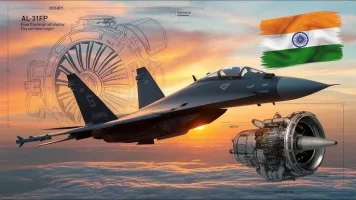
The recent Quad Leaders’ Summit in Wilmington, USA, has brought a new dimension to regional security in the Indo-Pacific. Aimed at countering China's growing assertiveness in the region, the Quad nations – the USA, India, Japan, and Australia – announced a landmark initiative: the first-ever joint Coast Guard mission at sea. This move signals a shift towards a more collaborative approach to maritime security, with Coast Guards taking a leading role.
The planned "Quad-at-Sea Ship Observer Mission" in 2025 will see members of the Indian, Japanese, and Australian Coast Guards embark on a US Coast Guard vessel operating in the Indo-Pacific. This initiative, born out of concerns over China's coercive actions in the South China Sea, seeks to enhance interoperability and train smaller Indo-Pacific nations in maritime security. The focus on Coast Guard cooperation, rather than naval deployment, underscores a desire to avoid escalating tensions while effectively addressing China's "grey zone" tactics.
This development has brought into sharp focus the need for India to reassess the relationship between its Navy and Coast Guard. Since its inception in 1978, the Indian Coast Guard (ICG) has operated under the Ministry of Defence, often in the shadow of the Indian Navy. While this arrangement may have been necessary in the ICG's formative years, its continued dependence on the Navy raises concerns about its operational independence and distinct identity.
The ICG has evolved into a formidable force, with a fleet of 152 ships and 78 aircraft, responsible for a wide range of duties including maritime law enforcement, search and rescue, and protection of India's Exclusive Economic Zone (EEZ). Its successful recapture of the hijacked MV Alondra Rainbow in 1999 and its expanded role following the 2008 Mumbai attacks highlight its growing capabilities and importance.
However, as India's Navy expands its blue-water capabilities with aircraft carriers and nuclear submarines, the need for a clear delineation between the Navy's strategic offensive role and the ICG's constabulary functions becomes crucial. Experts argue that placing the ICG under the Ministry of Home Affairs (MHA), aligning it with the structure of most developed nations, would grant it greater autonomy and allow it to better fulfill its mandate, particularly in non-military maritime services.
This move would also enhance the ICG's international profile, especially within the Quad framework. As India participates in joint missions and training exercises, an independent Coast Guard would project a clearer image of its role and capabilities, fostering greater trust and cooperation with its international counterparts.
Furthermore, an independent ICG would be better positioned to secure India's commercial sea lanes, such as the proposed India-Middle East-Europe Economic Corridor (IMEC). This ambitious project, aimed at connecting Asia, the Persian Gulf, and Europe, will require robust maritime security, a task well-suited to a strengthened and autonomous Coast Guard.
The Quad initiative has already drawn a response from China. President Xi Jinping, in his recent National Day address, warned of "rough and stormy seas" ahead, acknowledging the challenges posed by the Quad's growing influence. This underscores the strategic significance of the Quad's Coast Guard cooperation and its potential to reshape the maritime security landscape in the Indo-Pacific.
By establishing an independent Coast Guard, India can effectively contribute to the Quad's efforts to counter China's assertiveness while simultaneously strengthening its own maritime security apparatus. This strategic move would not only enhance India's standing within the Quad but also contribute to a more stable and secure Indo-Pacific region.


